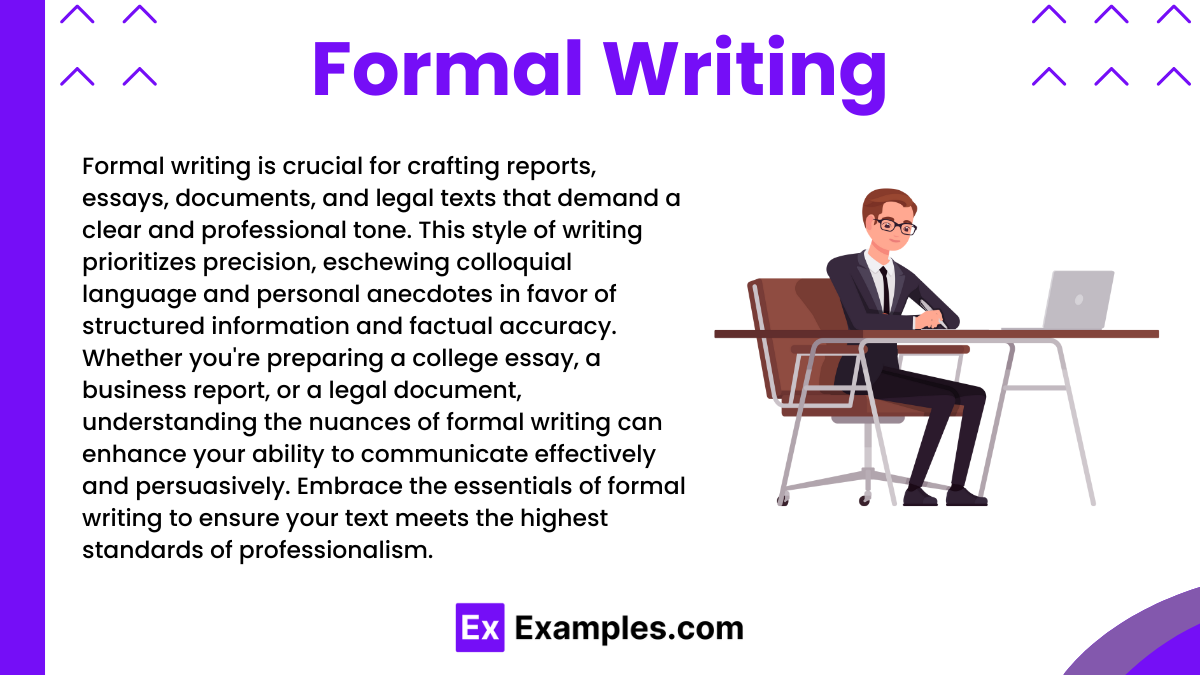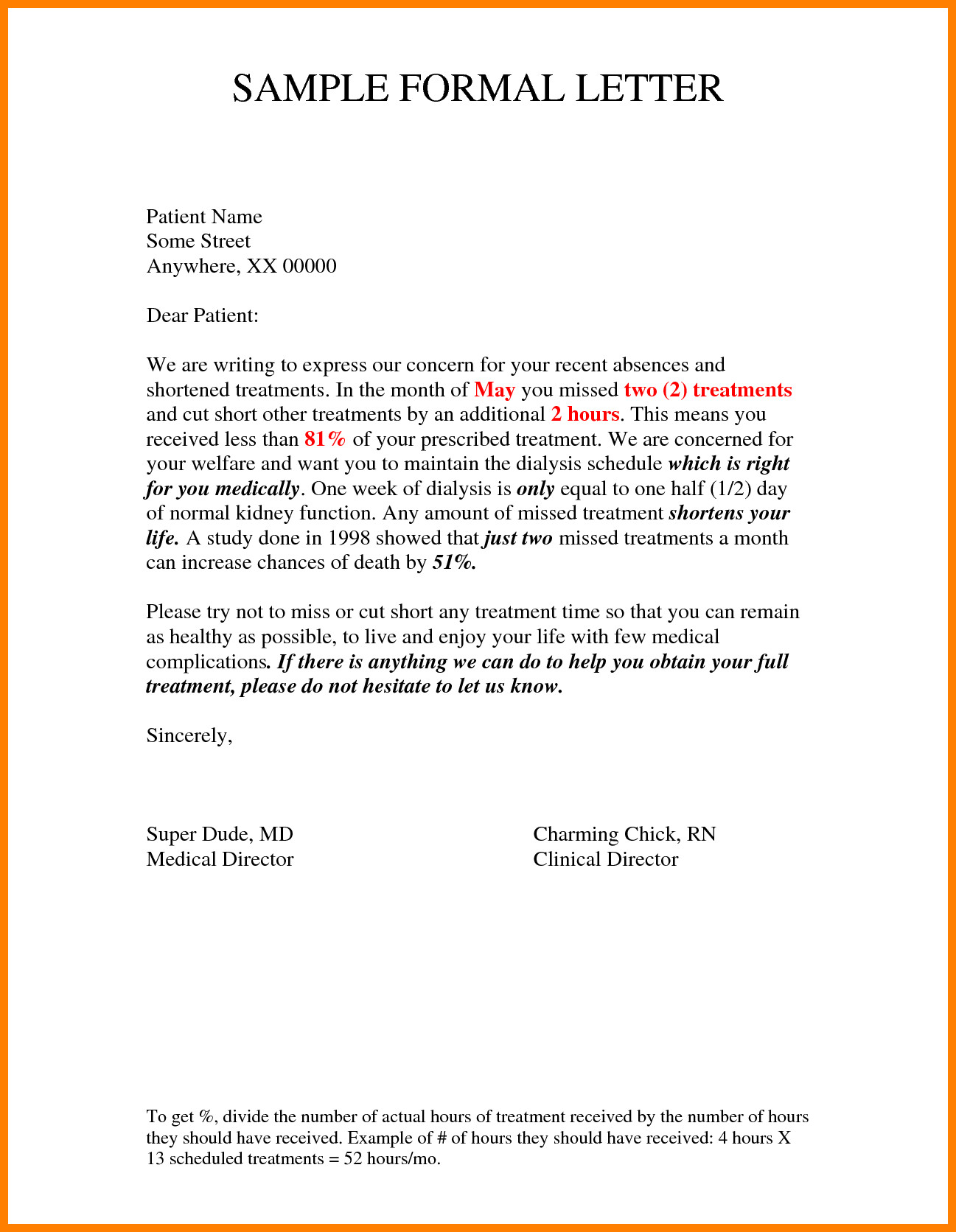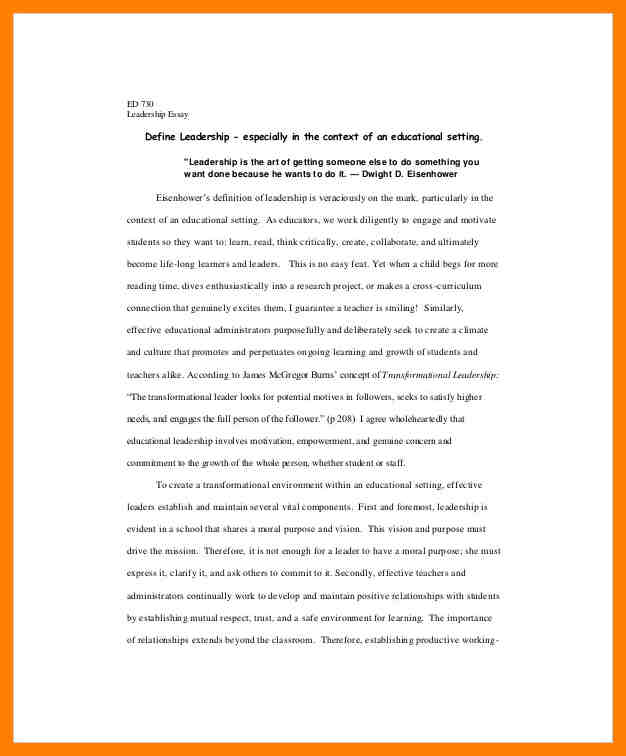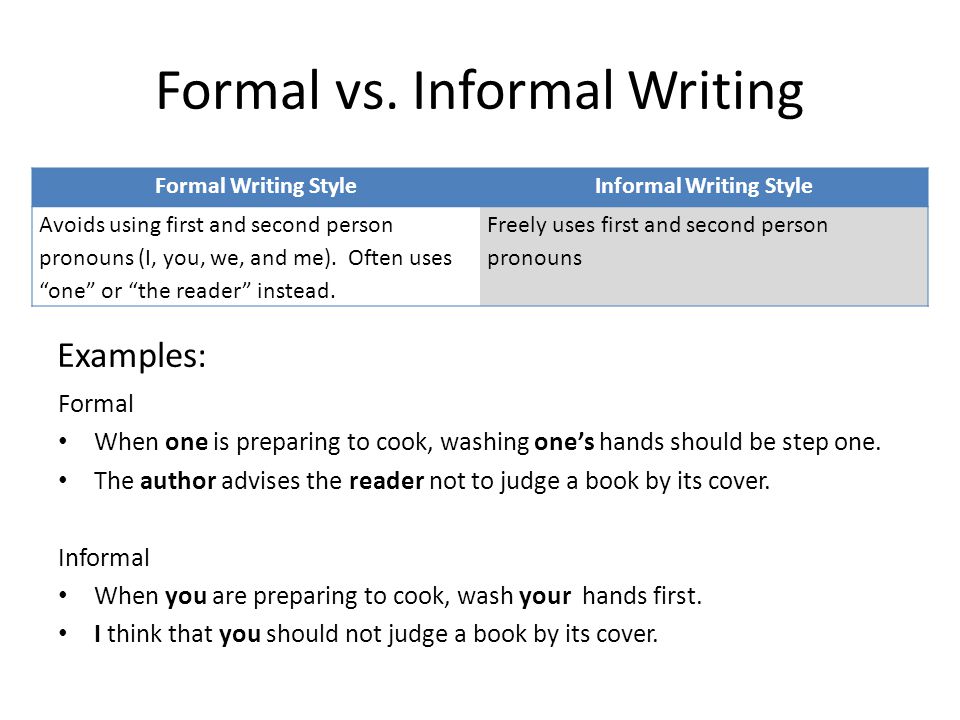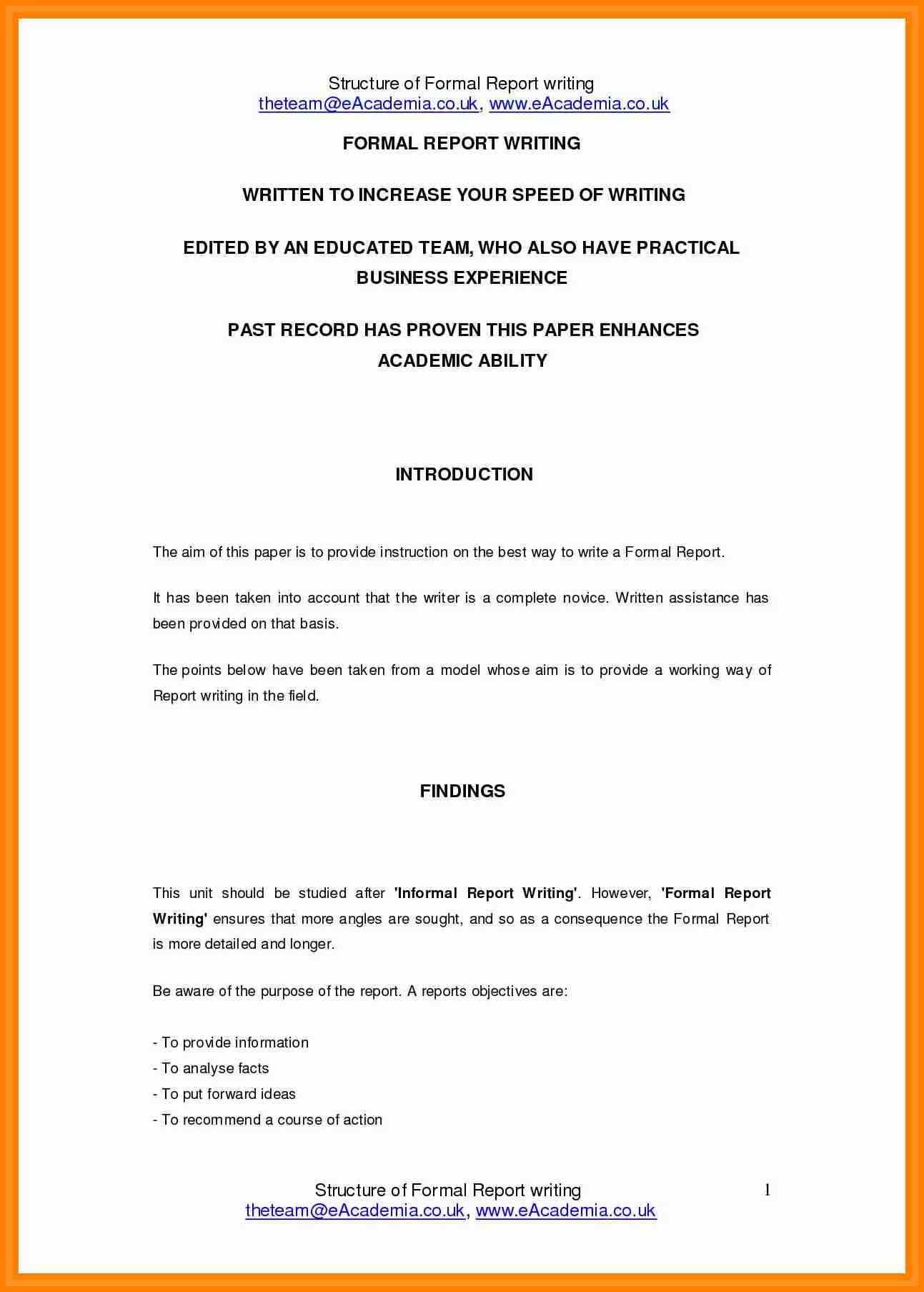6+ Formal Writing Examples to Download
Formal writing is crucial for crafting reports, essays, documents, and legal texts that demand a clear and professional tone. This style of writing prioritizes precision, eschewing colloquial language and personal anecdotes in favor of structured information and factual accuracy. Whether you’re preparing a college essay, a business report, or a legal document, understanding the nuances of formal writing can enhance your ability to communicate effectively and persuasively. Embrace the essentials of formal writing to ensure your text meets the highest standards of professionalism.
What is Formal Writing?
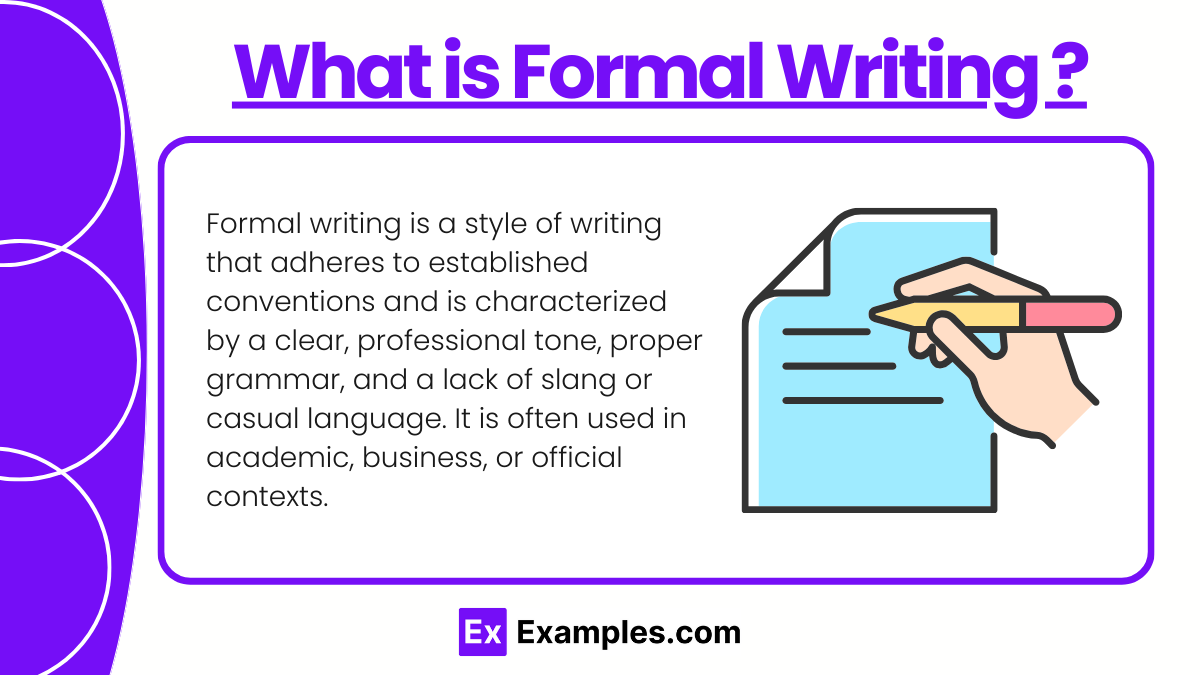
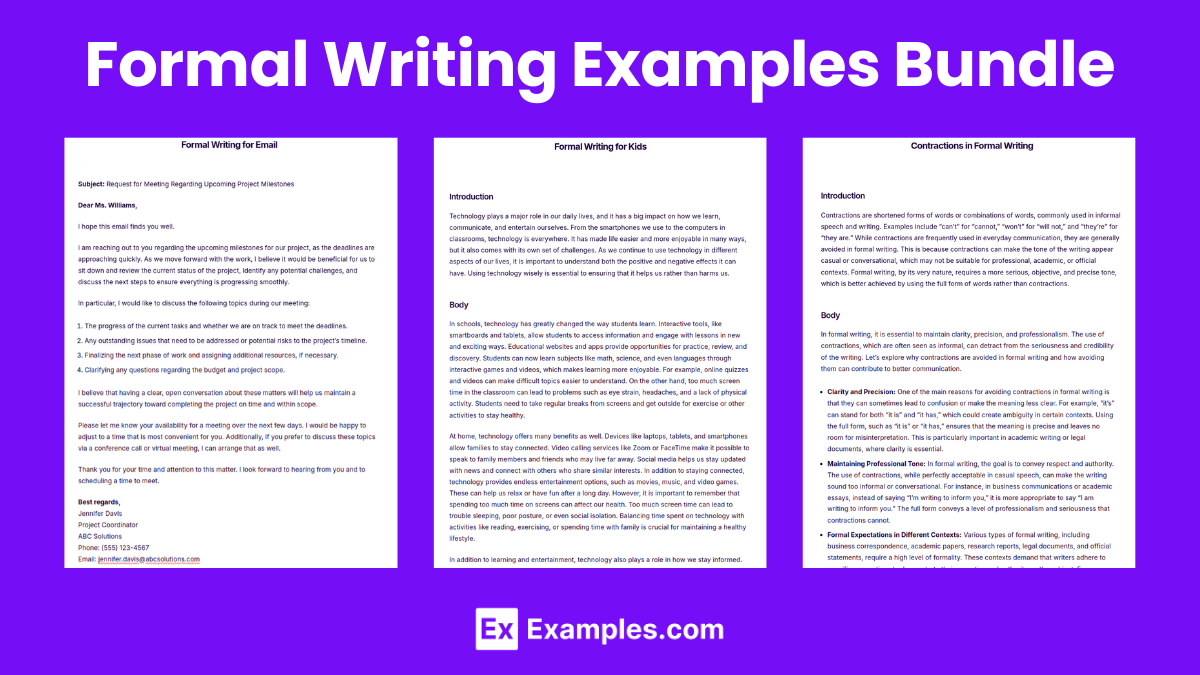
Formal Writing Examples Bundle
Formal Writing Format
Introduction
In formal writing, the introduction should present the main idea or purpose of the document clearly and concisely. It sets the stage for the rest of the writing, providing background information or context if necessary.
Body
The body is the main part of the writing, where arguments, ideas, or information are discussed in detail. Each paragraph should focus on a specific point or idea, and there should be a logical flow of thought. Proper transitions between paragraphs help maintain coherence.
Conclusion
The conclusion summarizes the main points discussed in the body and restates the purpose of the writing. It may offer a solution, recommendation, or reflection, bringing the writing to a close.
Language and Tone
Formal writing uses a professional tone, avoiding colloquial expressions, contractions, and casual language. It should maintain objectivity and clarity, especially when addressing academic or professional topics.
Formatting
The document should be properly formatted with consistent font style, size, and spacing. Margins should be aligned according to the required guidelines. The use of headings, subheadings, and paragraphs helps organize the content and makes it easier to follow.
Format Writing Example
Formal Writing Examples
Formal Writing for Kids
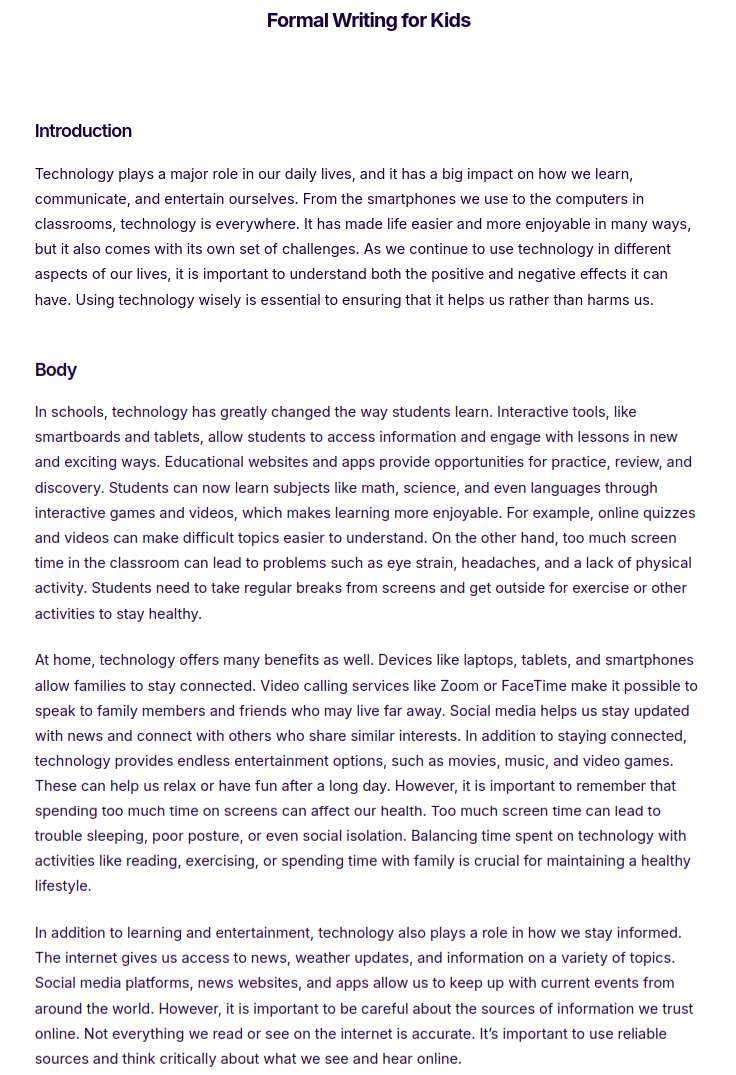
Formal Writing for Email
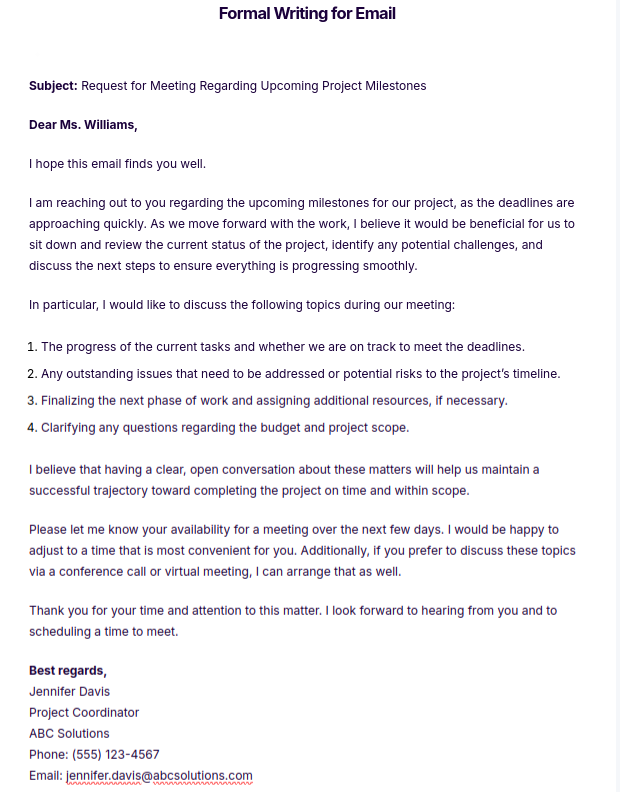
Contractions in Formal Writing
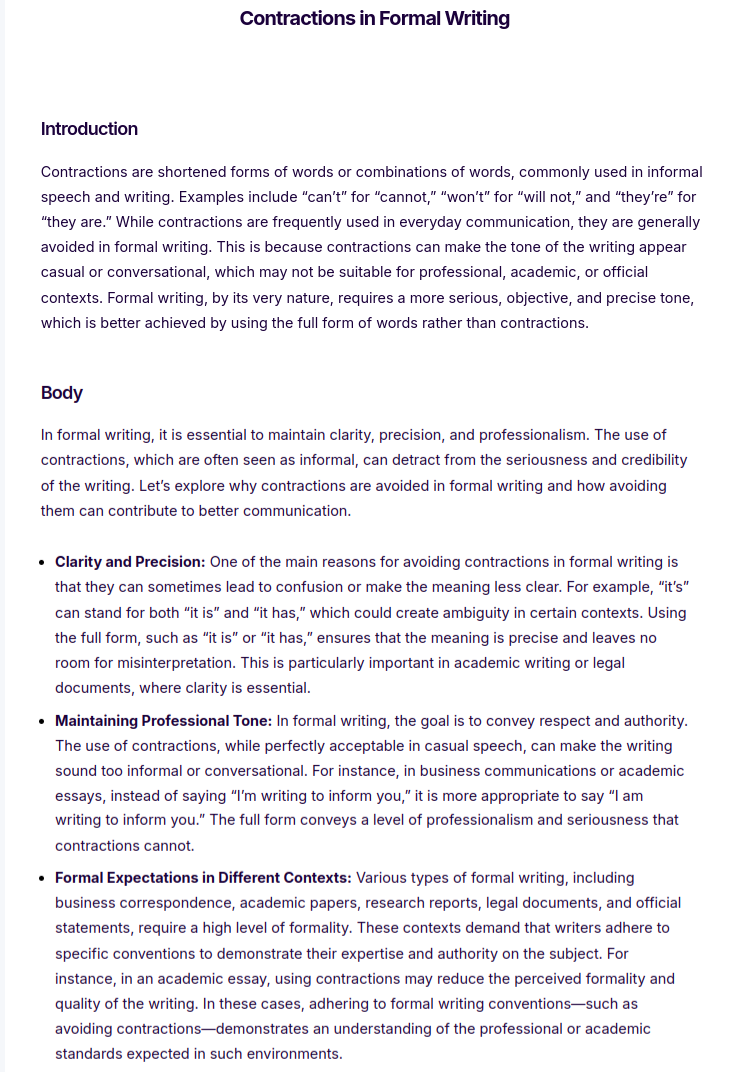
More Examples on Formal Writing
Sample Formal Letter
Formal Writing Example
- Formal writing cannot involve emotions or empathy in the content of their paper the way informal writing can.
Formal: Simply state the facts that you have gathered and any additional information about it that you want to include. There is no need to tell your audience about your struggles and feelings because formal writing is not an avenue for sensations.
Informal: I had a hard time in constructing my paper’s body since the topic is a little confusing.
Formal vs. Informal Writing
Formal Report Writing
Types of Formal Writing
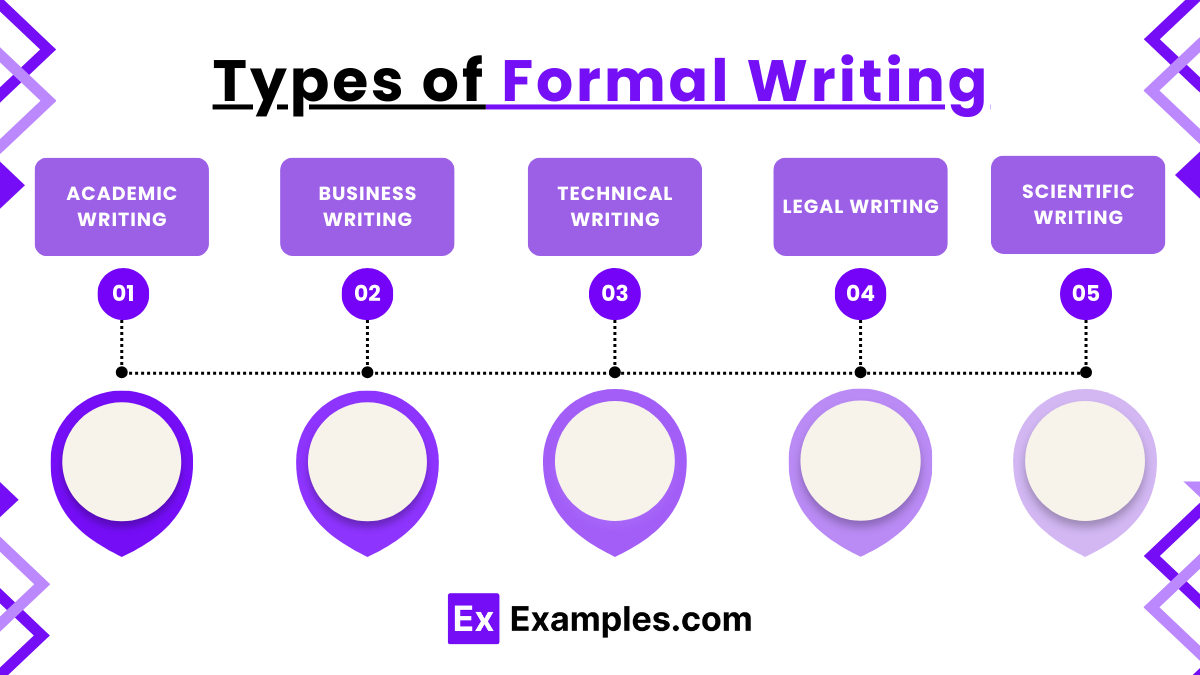
Academic Writing
Academic writing encompasses a range of formats from essays and research papers to case studies and dissertations. The language used is precise, formal, and structured according to specific academic guidelines. This type of writing often includes detailed arguments, evidence-based analysis, and extensive referencing.
Business Writing
Business writing includes reports, proposals, formal emails, memos, and documentation for professional purposes. Clarity, formality, and succinctness are prioritized to convey professionalism and facilitate clear communication. Often, this type of writing addresses operational procedures, financial matters, and strategic decisions.
Technical Writing
Technical writing involves creating user manuals, instruction guides, product descriptions, and other documents that explain complex information clearly and accurately. It is designed to help users understand products, processes, or services, and is characterized by its focus on clarity, precision, and utility.
Legal Writing
Legal writing encompasses a wide variety of documents, including contracts, legal correspondences, briefs, and other legal documentation. It is highly formal and uses specific legal terminology. The aim is to communicate legal arguments or details unambiguously and persuasively.
Scientific Writing
Scientific writing is used to report new scientific findings and discuss their implications. This includes research papers, journal articles, and grant proposals. It is characterized by its strict adherence to scientific methods, use of passive voice (in many cases), and reliance on objective data to support findings.
Characteristics of Formal Writing
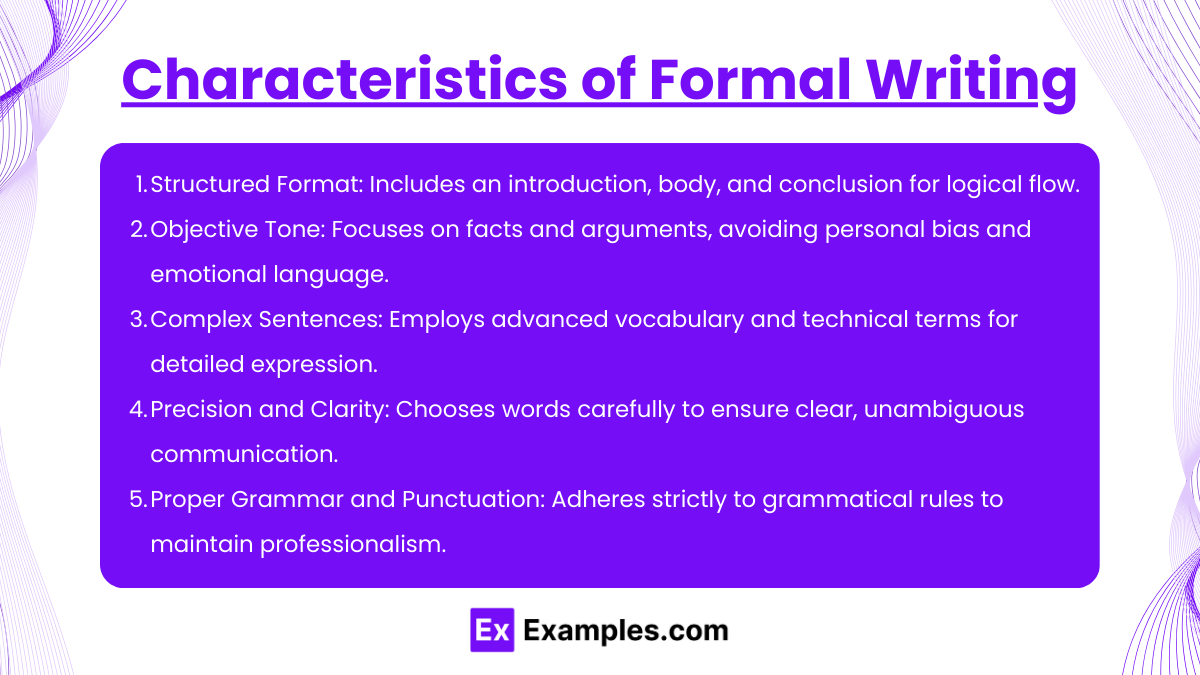
- Structured Format: Formal writing follows a clear and organized structure, which typically includes an introduction, body, and conclusion. The structure helps to convey the information in a logical and systematic manner.
- Objective Tone: It maintains an objective and impersonal tone, avoiding personal opinions, emotive language, or informal expressions. The focus is on the facts or the arguments rather than the writer’s personal feelings.
- Complex Sentences: The use of complex sentences with advanced vocabulary and technical terms is common. This complexity helps to convey detailed and nuanced information precisely.
- Precision and Clarity: Every word and sentence is chosen for precision and clarity. The aim is to ensure that the reader understands the exact meaning without ambiguity, which is crucial in formal contexts like legal or academic documents.
- Proper Grammar and Punctuation: Formal writing strictly adheres to rules of grammar and punctuation. This adherence helps maintain the formal tone of the document and ensures that the writing is professional and easy to understand.
Rules of Formal Writing
- Use Complete Sentences: Avoid fragments and incomplete thoughts. Each sentence should be complete and provide clear information.
- Avoid Contractions: As mentioned earlier, contractions like “don’t” or “can’t” are typically too casual for formal writing. Use the full forms such as “do not” and “cannot” to maintain formality.
- Be Objective: Keep the tone objective and avoid subjective language, personal anecdotes, or overtly emotional expressions unless specifically relevant to the context, such as in a reflective essay within an academic setting.
- Use Third Person Point of View: Generally, it’s advisable to write in the third person for academic and professional documents. This perspective keeps the focus on the subject being discussed rather than the writer’s personal views.
- Avoid Slang and Colloquialisms: Use standard language and avoid slang or colloquial expressions, which can seem unprofessional or too informal.
- Be Precise and Concise: Use precise vocabulary to convey information clearly and avoid verbosity. Formal writing values directness and succinctness.
- Adhere to Specific Formatting Rules: Follow the specific formatting guidelines relevant to the type of document you are writing, such as MLA, APA, or Chicago style for academic papers, or professional templates for business reports.
- Maintain Consistent Tense: Keep the verb tense consistent throughout the document, unless shifts in time necessitate a change.
- Use Passive Voice Appropriately: While active voice is often encouraged for clear writing, passive voice can be appropriate in formal writing to emphasize the action rather than the actor, particularly in scientific or technical contexts.
- Proofread and Edit: Always thoroughly proofread and edit formal writing to ensure it is free of errors and ambiguities. This step is crucial to maintaining professionalism and credibility.
FAQs
What are the key features of formal writing?
Structured format, formal language, precise vocabulary, clear thesis, evidence-based arguments, proper punctuation, and citation of sources.
How should I start a formal essay?
Begin with an engaging hook, provide background information, and present a clear thesis statement.
What is the importance of formal tone in writing?
A formal tone ensures professionalism, credibility, and clarity, making the writing suitable for academic, business, or official contexts.
How do I cite sources in formal writing?
Use recognized citation styles like APA, MLA, or Chicago, and include in-text citations and a bibliography or works cited page.
Can I use contractions in formal writing?
No, avoid contractions (e.g., “can’t,” “won’t”) to maintain a formal and professional tone.
What types of documents require formal writing?
Academic essays, research papers, business reports, legal documents, technical manuals, and official correspondence.
How do I structure a formal letter?
Include a header, recipient address, formal salutation, body with clear purpose, formal closing, and sender’s signature.
What language should I avoid in formal writing?
Avoid slang, colloquialisms, jargon, and informal language to ensure clarity and professionalism.
How can I improve clarity in formal writing?
Use concise language, organize content logically, employ topic sentences, and provide clear evidence and examples.
What formatting is appropriate for formal documents?
Use professional fonts (e.g., Times New Roman), double-space text, include headings, and follow specific style guidelines (e.g., APA, MLA).



